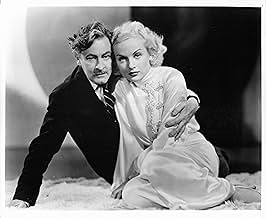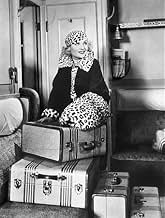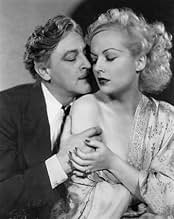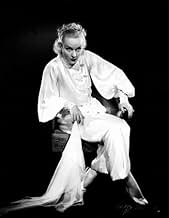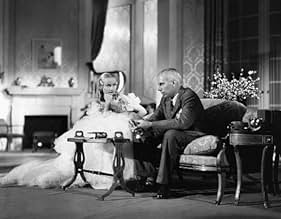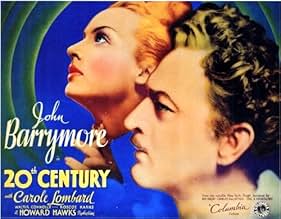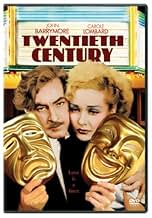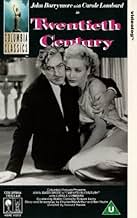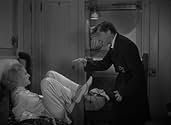NOTE IMDb
7,2/10
7,6 k
MA NOTE
Ajouter une intrigue dans votre langueA flamboyant Broadway impresario who has fallen on hard times tries to get his former lover, now a Hollywood diva, to return and resurrect his failing career.A flamboyant Broadway impresario who has fallen on hard times tries to get his former lover, now a Hollywood diva, to return and resurrect his failing career.A flamboyant Broadway impresario who has fallen on hard times tries to get his former lover, now a Hollywood diva, to return and resurrect his failing career.
- Réalisation
- Scénario
- Casting principal
- Récompenses
- 4 victoires et 1 nomination au total
Charles Lane
- Max Jacobs
- (as Charles Levison)
Bobby Barber
- Sign Painter
- (non crédité)
Herman Bing
- Beard #1
- (non crédité)
Lynton Brent
- Train Secretary
- (non crédité)
Anita Brown
- Black Stage Showgirl
- (non crédité)
James Burke
- Sheriff
- (non crédité)
James P. Burtis
- Train Conductor
- (non crédité)
Eddy Chandler
- Cameraman
- (non crédité)
Nick Copeland
- Treasurer
- (non crédité)
Avis à la une
Down but not quite out, a megalomaniacal theatrical producer schemes to get his former star & lover back under contract during a wild ride on the TWENTIETH CENTURY Limited racing from Chicago to New York City.
Directed by Howard Hawks from an inspired script by Ben Hecht & Charles MacArthur, this is one of the seminal screwball comedies which would set the high-water mark for years to come - zany characters, living at a frenetic pace, throwing outrageous lines at each other. While the situations are completely unrealistic it makes no matter. Films like this were calculated to lift Depression audiences out of their troubles for an hour or so; today, we long for them to work that old magic again.
In a large & spirited cast there is one eminence, one name above the title, one peak ascending over the smaller hills. John Barrymore, a lifetime of theatrical history and private dissolution etched on his remarkable face, is a grade A ham as the unspeakable Oscar Jaffe, willing to break any convention, law or dogma to get what he wants. Cajoling, pleading, threatening, cooing like a dove, screeching like a banshee, Barrymore is utterly mad, unspeakably obnoxious & thoroughly delightful. He doesn't just dominate the film, he overwhelms it like a thick wave of brimstone & honey. Watching him infuriate his players by chalking their movements on the floor, disguise himself as an elderly Southern gentleman in order to sneak aboard the train, or arranging his own fake death scene to serve his egotistical ends, is to watch a master of the acting art play a comedic role worthy of him.
Carole Lombard is lovely, but completely overshadowed by Barrymore. Her character, while that of a great star, is pitched at a more normal tilt and exists to react to his enormities. While she's wonderful to watch, it's impossible to forget to whom the film really belongs.
The rest of the cast is first rate. Barrymore's two faithful factotums are played by dyspeptic Walter Connolly and sardonic, boozy Roscoe Karns, both of whom have learned to deal with The Master's dictums in different ways. Hatchet-faced Charles Lane plays a director who becomes Barrymore's theatrical blood rival. Edgar Kennedy burnishes his few scenes as a private eye who's no match for an enraged Lombard. Handsome Englishman Ralph Forbes plays against type as a spoiled society boy who thinks he's in love with Lombard. And for sheer looniness there's chittering little Etienne Girardot, playing a benignly mad gentleman wandering about the train plastering large REPENT stickers on every available surface.
Movie mavens will recognize Herman Bing & Lee Kohlmar as the uncredited & hilarious Passion Players from Oberammergau.
Directed by Howard Hawks from an inspired script by Ben Hecht & Charles MacArthur, this is one of the seminal screwball comedies which would set the high-water mark for years to come - zany characters, living at a frenetic pace, throwing outrageous lines at each other. While the situations are completely unrealistic it makes no matter. Films like this were calculated to lift Depression audiences out of their troubles for an hour or so; today, we long for them to work that old magic again.
In a large & spirited cast there is one eminence, one name above the title, one peak ascending over the smaller hills. John Barrymore, a lifetime of theatrical history and private dissolution etched on his remarkable face, is a grade A ham as the unspeakable Oscar Jaffe, willing to break any convention, law or dogma to get what he wants. Cajoling, pleading, threatening, cooing like a dove, screeching like a banshee, Barrymore is utterly mad, unspeakably obnoxious & thoroughly delightful. He doesn't just dominate the film, he overwhelms it like a thick wave of brimstone & honey. Watching him infuriate his players by chalking their movements on the floor, disguise himself as an elderly Southern gentleman in order to sneak aboard the train, or arranging his own fake death scene to serve his egotistical ends, is to watch a master of the acting art play a comedic role worthy of him.
Carole Lombard is lovely, but completely overshadowed by Barrymore. Her character, while that of a great star, is pitched at a more normal tilt and exists to react to his enormities. While she's wonderful to watch, it's impossible to forget to whom the film really belongs.
The rest of the cast is first rate. Barrymore's two faithful factotums are played by dyspeptic Walter Connolly and sardonic, boozy Roscoe Karns, both of whom have learned to deal with The Master's dictums in different ways. Hatchet-faced Charles Lane plays a director who becomes Barrymore's theatrical blood rival. Edgar Kennedy burnishes his few scenes as a private eye who's no match for an enraged Lombard. Handsome Englishman Ralph Forbes plays against type as a spoiled society boy who thinks he's in love with Lombard. And for sheer looniness there's chittering little Etienne Girardot, playing a benignly mad gentleman wandering about the train plastering large REPENT stickers on every available surface.
Movie mavens will recognize Herman Bing & Lee Kohlmar as the uncredited & hilarious Passion Players from Oberammergau.
As soon as this gem begins, we're dipped into great comedy. An egomanical producer (a very funny John Barrymore) takes lowly fashion model Mildred Plotka (equally funny Carole Lombard) and makes her the darling of Broadway. She rebels from his Svengali-like grasp and heads for Hollywood. Years later, Barrymore, armed with his sidekicks (tipsy Roscoe Karns and whiner Walter Connely) meet Lombard on a cross country train. During this insane adventure there's hammy Euro-trash Passion Play actors (They think "Moocher" is some sort of compliment), a kindly old religious nut (armed with repent stickers and bouncing checks) The finale verbal-physical spat of Lombard vs. Barrymore is not for the faint of heart! A Classic comedy Goldmine!!
Completely over the top, silly but very funny, Twentieth Century makes the most of Carole Lombard and John Barrymore's comedic talents. This film marked the beginning of Lombard's fabulous career (tragically cut short in 1942) and the end of Barrymore's. They truly are two of the best performers that motion picture history has ever seen. I really envy Lombard's ability to laugh on cue, and Barrymore's ability to pull hilarious facial expressions.
Oscar Jaffe, (John Barrymore), a big time director, made Mildred Plotka now named Lily Garland a star, but HIS career is taking a battering after Lily packed up her life with him and on stage for Hollywood stardom. They accidentally meet on the Twentieth Century Limited and hilarity ensues! There is some fantastic physical comedy here and both Barrymore and Lombard are fantastic as the overly dramatic actor/director couple who are only real "from curtain to curtain". It's a great balance of drama/comedy.
My favourite part was definitely the start. I laughed out loud when Barrymore says "Dinga-linga-ling". After seeing him in Dinner at Eight (1933), I was surprised he had THIS much talent for comedy. Carole of course is her usual perfect self. I believe neither overshadows each other. I was very impressed with both of them. However, I have not forgotten the brilliant supporting cast, with the likes of Walter Connolly, Roscoe Karns and Ralph Forbes.
Twentieth Century is a classic screwball comedy which could please the harshest of critics. Dramatic, funny but in many ways climatic. I would have enjoyed it even it had been disappointing as all the fashions were absolutely divine! Wonderful to see Hollywood's greatest actors produce such fine work together. A classic through and through.
Oscar Jaffe, (John Barrymore), a big time director, made Mildred Plotka now named Lily Garland a star, but HIS career is taking a battering after Lily packed up her life with him and on stage for Hollywood stardom. They accidentally meet on the Twentieth Century Limited and hilarity ensues! There is some fantastic physical comedy here and both Barrymore and Lombard are fantastic as the overly dramatic actor/director couple who are only real "from curtain to curtain". It's a great balance of drama/comedy.
My favourite part was definitely the start. I laughed out loud when Barrymore says "Dinga-linga-ling". After seeing him in Dinner at Eight (1933), I was surprised he had THIS much talent for comedy. Carole of course is her usual perfect self. I believe neither overshadows each other. I was very impressed with both of them. However, I have not forgotten the brilliant supporting cast, with the likes of Walter Connolly, Roscoe Karns and Ralph Forbes.
Twentieth Century is a classic screwball comedy which could please the harshest of critics. Dramatic, funny but in many ways climatic. I would have enjoyed it even it had been disappointing as all the fashions were absolutely divine! Wonderful to see Hollywood's greatest actors produce such fine work together. A classic through and through.
John Barrymore is in rare form in Twentieth Century (1934), Howard Hawks's hilarious, fast-paced screwball comedy. He plays flamboyant Broadway director-producer Oscar Jaffe, a man for whom the whole world is truly a stage. The always enchanting Carole Lombard co-stars as Mildred Plotka/Lily Garland. (Oscar demanded the name change because Mildred Plotka isn't nearly as glamorous sounding as Lily Garland.) Mildred, an aspiring Broadway actress, is remade by Oscar into a star of the New York stage. For three years he directs her plays, guides her career, and is her lover. But after they have a big disagreement, she takes off for Hollywood. Her career soars; his plummets. Time passes and then on board the Twentieth Century heading for Grand Central Station, they meet again. As usual in a Hawks film, the supporting cast is outstanding; and Ben Hecht and Charles MacArthur's screenplay is one of their finest.
Howard Hawks' early foray into screwball comedy pits the wonderful pairing of John Barrymore and Carole Lombard against each other. She is Lily Garland, a Broadway actress about to break in Hollywood; he's her theatrical producer and on-off beau, desperate for her to stay. Around half of the film is taken up with them screeching at each other, leaving the supporting actors with very little to do.
There is a lot of sparkle here, great performances from the two leads, who work together just fine, and a screenplay which moves almost as fast as the train which gives the movie its title. Ten years after this was made, both Barrymore and Lombard were dead, but this stands as a fine epitaph for them together.
There is a lot of sparkle here, great performances from the two leads, who work together just fine, and a screenplay which moves almost as fast as the train which gives the movie its title. Ten years after this was made, both Barrymore and Lombard were dead, but this stands as a fine epitaph for them together.
Le saviez-vous
- AnecdotesJohn Barrymore once said that the role of Oscar was "a role that comes once in a lifetime" and even deemed this his favorite of all the movies he appeared in.
- Gaffes(at around 20 mins) O'Malley arrives at Lily's apartment. When she answers the door, he discards his newspaper twice between shots.
- Citations
Oscar Jaffe: Go on, Owen... tell her I'm dying... and DON'T OVERACT!
- Versions alternativesThere is an Italian edition of this film on DVD, distributed by DNA Srl. The film has been re-edited with the contribution of film historian Riccardo Cusin. This version is also available for streaming on some platforms.
- ConnexionsFeatured in The Men Who Made the Movies: Howard Hawks (1973)
- Bandes originalesHappy Days Are Here Again
(1929) (uncredited)
Music by Milton Ager
Lyrics by Jack Yellen
Sung a cappella by Walter Connolly
Meilleurs choix
Connectez-vous pour évaluer et suivre la liste de favoris afin de recevoir des recommandations personnalisées
- How long is Twentieth Century?Alimenté par Alexa
Détails
Box-office
- Montant brut mondial
- 10 078 $US
- Durée
- 1h 31min(91 min)
- Couleur
- Rapport de forme
- 1.37 : 1
Contribuer à cette page
Suggérer une modification ou ajouter du contenu manquant


